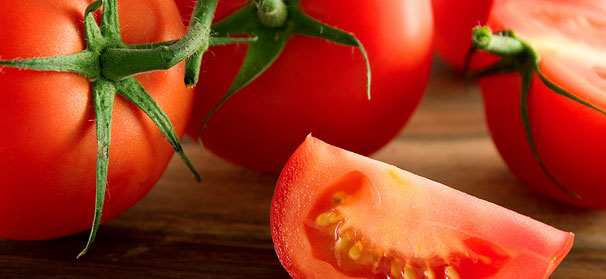

Jun 13, 2013Florida continues tomato dispute with Mexico
The Florida Tomato Exchange (FTE) recently filed a lawsuit with the U.S. Court of International Trade, challenging whether or not a recent agreement with Mexican tomato interests complies with federal trade laws.
The lawsuit is the latest volley in an ongoing dispute between Florida’s fresh tomato growers and Mexican tomato exporters.
The agreement, which went into effect March 4, suspended an antidumping investigation of fresh tomato imports from Mexico. Initiated in 1996, the investigation sought to discover if Mexican growers were “dumping,” or selling fresh tomatoes into the U.S. market for less than the cost of production, according to the U.S. Department of Commerce.
FTE claims it filed the lawsuit because the commerce department failed to ascertain the present cost of tomato production in Mexico in order to ensure that Mexican tomatoes are not being dumped into the U.S. market below the cost of production.
“Since day one, we have simply been seeking to have any suspension agreement negotiated by the commerce department with the Mexican exporters comply with the very specific provisions of U.S. law,” said Reggie Brown, FTE’s executive vice president. “We don’t believe that the recently concluded suspension agreement does. Our only recourse is to place the question of whether the agreement meets the requirements of the law before the U.S. Court of International Trade.”
Back in February, Gene McAvoy, a vegetable Extension agent with the University of Florida, said the suspension agreement was a step in the right direction. It raised the price for a box of Mexican tomatoes to $7.71 or so – about a break-even price for Florida growers.
“The past few years, we’ve seen product coming in from Mexico at, like, $5 a box, and when you start to look at the cost of the box and transportation, it’s hard to see how they can even do that unless they are dumping product into the U.S.,” McAvoy said.
“(The agreement) will prevent that undercutting and allow us to stay in business, so it’s a good thing (compared to) being crippled the last few years,” he said. “It’s been horrible.”
The Fresh Produce Association of the Americas (FPAA), a nonprofit trade association headquartered in Nogales, Ariz., represents a different perspective. FPAA’s members include more than 120 U.S. companies involved in the growing, packing, sales and transportation of fresh fruits and vegetables from Mexico.
FPAA had hoped that the recent suspension agreement – with its massive floor-price increases for Mexican tomatoes – would have satisfied U.S. tomato interests, but it didn’t, said Lance Jungmeyer, FPAA’s president.
The goal of FTE’s lawsuit is to reopen the antidumping investigation and impose antidumping duties on Mexican tomatoes. The resulting price increases would eat into Mexican profits and create burdens for consumers without adding any value to the supply chain, Jungmeyer said.
The Florida tomato industry can’t compete with Mexico’s advantages and hasn’t been able to lower its costs of production the way Mexico has, he said.
“Their way of doing business is not to innovate and be more efficient, but to look for government intervention,” Jungmeyer said.
FPAA supported the recent suspension agreement even though it was a “mixed bag all around.” It was certainly better than resuming the antidumping investigation, but its floor-price increases were much bigger than those of previous agreements – and will keep some Mexican tomatoes out of the U.S. market, Jungmeyer said.
If the recently negotiated floor prices for Mexican tomato imports happen to be higher than prices in the U.S. market (which fluctuate), it will be tough for Mexican producers to sell their product. There’s a lot of uncertainty, Jungmeyer said.
U.S. Agriculture Secretary Tom Vilsack said the suspension agreement allows the U.S. tomato industry to “compete on a level playing field.”
Besides increasing the categories of tomato types from one to four to reflect changes in the market, the reference prices were raised “to better reflect the realities of today’s marketplace,” according to the commerce department.
“The department consulted intensively with the Mexican growers/exporters, as well as the domestic tomato industry, in an effort to develop an agreement that would be in the interest of all parties and meet the requirements of U.S. law,” stated Lorri Crowley, a public affairs specialist with the commerce department. “We believe the proposed agreement more accurately reflects the realities of the current tomato market and fulfills the requirements of the trade remedy laws.”
U.S. duties on Mexican tomatoes were originally set to go into effect in 1996, during the initial antidumping investigation, but the two governments negotiated a suspension agreement at the last minute, Jungmeyer said.
The suspension agreement was renegotiated and renewed in 2002 and 2008, according to FPAA.
The previous renegotiations included floor-price increases of 5-10 percent or so, but the 2013 renegotiation included floor-price increases of 50-100 percent, which came as quite a shock to the Mexican industry. But with the looming threat of reopening the antidumping investigation and the possible imposition of trade duties, the Mexican government had little alternative, Jungmeyer said.
“The U.S. government had Mexico over a barrel,” he said.
Tomatoes are Mexico’s top food export to the United States. If FTE’s lawsuit is successful, it could lead to an escalation of trade disputes between the two countries, Jungmeyer said.














